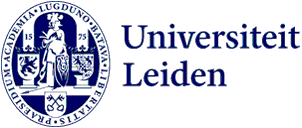Lecture
Why Humanities? Cristiana Strava on Middle Eastern Studies
- Date
- Thursday 5 December 2024
- Time
- Explanation
- No registration necessary
- Address
-
University Library
Witte Singel 27
2311 BG Leiden - Room
- Vossius room
Few in the academic world will have missed it: the Dutch government plans to impose substantial budget cuts on higher education, posing a significant threat to the humanities. Separately, plans were presented earlier this year in Leiden to merge the language programmes French, German, Italian, Chinese, and Japanese into broader, general programmes. Similarly, geographically focused studies like South and Southeast Asian Studies would be merged, specializations within Middle Eastern Studies are at risk of disappearing and the BA programmes African Studies and Latin American Studies may even be completely scrapped. Multiple (research) MA programmes are also slated to be merged or cut.

In the ongoing lecture series hosted by Leiden University Libraries (UBL), the spotlight turns to the significance of Middle Eastern Studies in the broader context of the humanities. The speaker for this session is Dr. Cristiana Strava, an anthropologist and lecturer at Leiden University, whose work bridges cultural studies, urban anthropology, and the histories of the Middle East and North Africa. Strava’s research delves into the everyday lives of communities in the region, exploring how urban environments, colonial legacies, and socio-political dynamics shape current-day lived experience.
In this lecture, Strava will underscore the critical role of Middle Eastern Studies in fostering nuanced understandings of a region often oversimplified in public discourse. Together with the Subject librarian of Middle Eastern Studies, Sahar Alkhulaidi, the conversation will highlight the significance of the UBL's unique Middle East collection stemming from a legacy that started almost 450 years ago. Alkhulaidi will showcase what makes this collection unique and the importance of preserving this tradition.
Events about the importance of the humanities, lectures by humanities researchers, for an audience largely consisting of humanities scholars – isn't this preaching to the choir? The answer is: yes, if the aim of the event were to 'convince.' But this audience does not need convincing.
Therefore, the goal is not to conduct a debate, but rather to create a space for reflection where researchers, lecturers, and students can pause to consider questions that they themselves may not always have immediate answers to. By taking the time to engage in dialogue and reflect collectively on the position of humanities scholars, these events aim to better equip scholars for conversations with those who may be less supportive. Nuance and reflection do not preclude a polemical stance or a compelling narrative; on the contrary.
